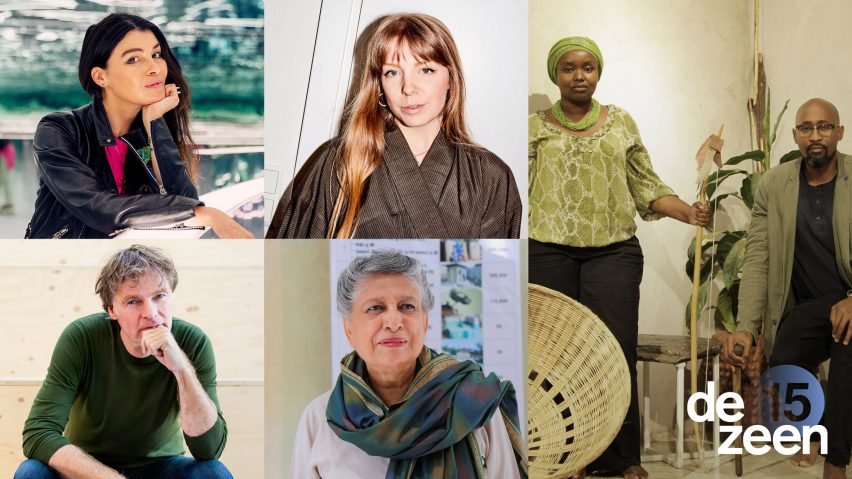
Dezeen 15 festival highlights include Es Devlin calling for "code of conduct" for architects and designers
The first week of the Dezeen 15 digital festival celebrating Dezeen's 15th birthday saw Yasmeen Lari call for "a new activism among architects" and Winy Maas state "it's okay to lose a commission" if the client resists sustainable proposals.
The festival will see a total of 15 creatives present ideas for how to change the world over the next 15 years. Running from 1 to 19 November, it will feature a different manifesto and live interview each weekday. See the line-up here.
Read on for some of the highlights so far:
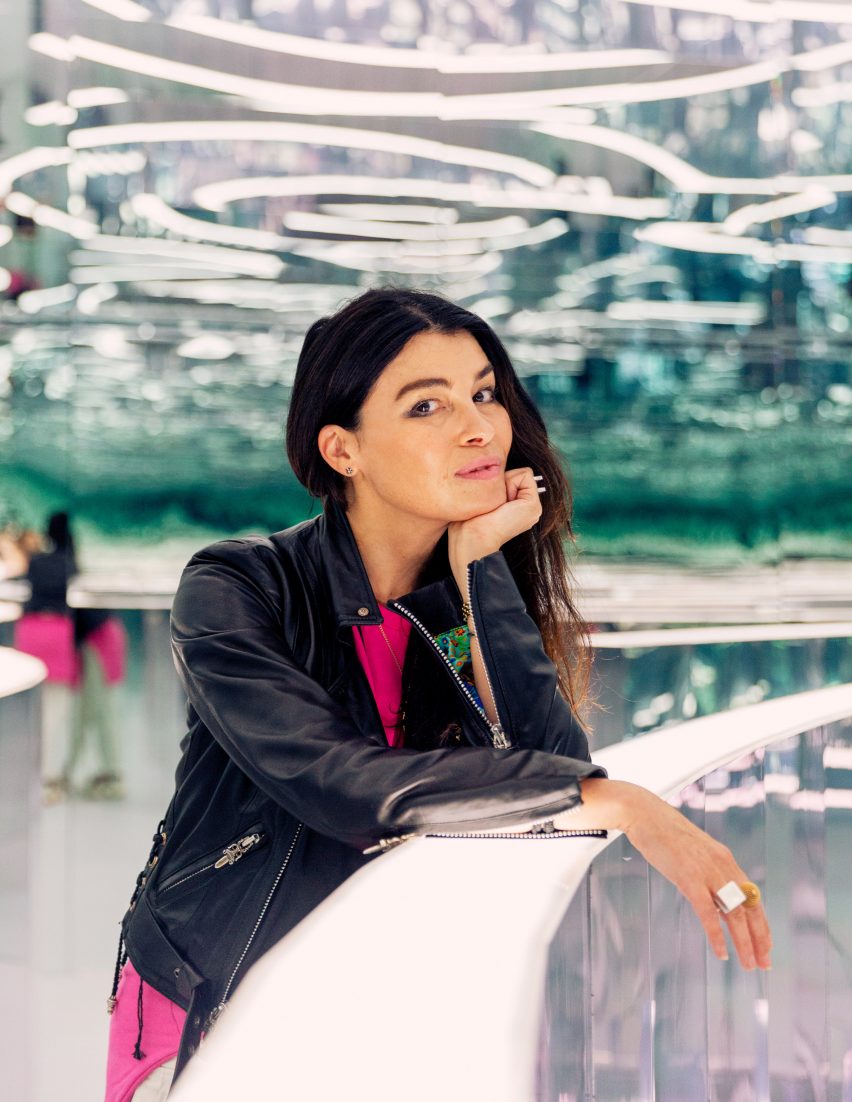
Es Devlin calls for "code of conduct" for designers
Day one: artist and designer Es Devlin kicked off the three-week festival by speaking live from the COP26 climate conference in Glasgow.
Her manifesto, written especially for Dezeen 15, called for trees to replace cars in cities by 2036.
She also called for architects and designers to sign "a code of conduct" similar to the Hippocratic Oath signed by doctors promising "to do no harm to the planet as they practice."
"I've observed in my colleagues that there is already a burgeoning sense that this is the way we want to practice," she said in a live video interview with Dezeen editor-in-chief Marcus Fairs.
"I don't think we want the burden of having done harm on our conscience."
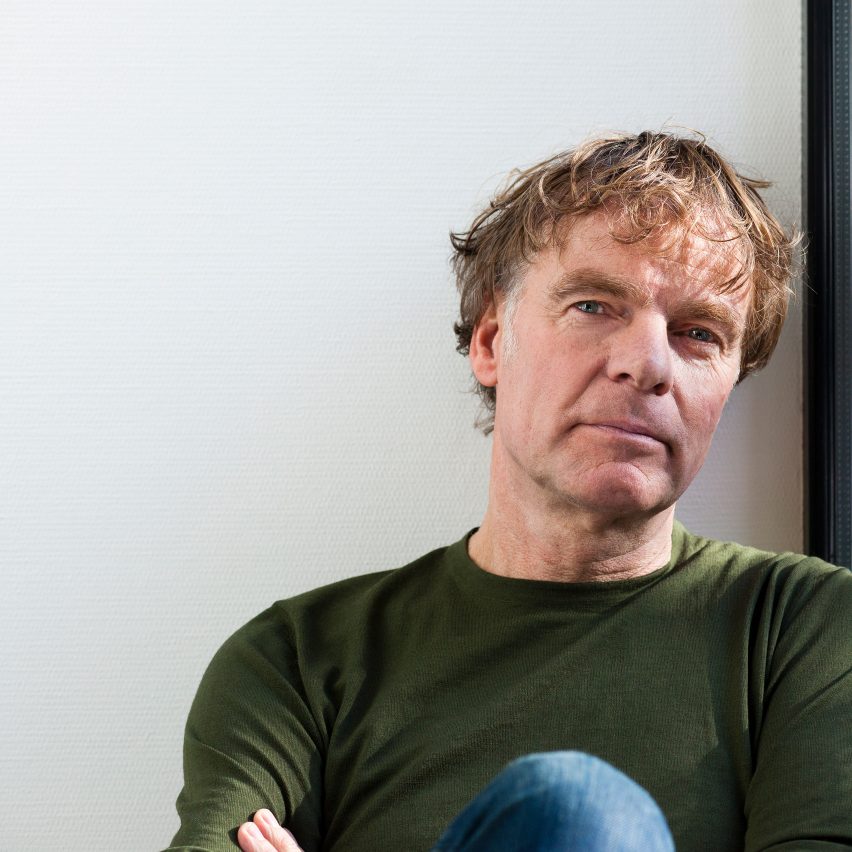
Winy Maas says "it's okay to lose a commission"
Day two: delivering sustainable buildings sometimes means losing work to rivals, according to architect Winy Maas, whose Dezeen 15 manifesto imagines the Earth covered in an inhabitable biostructure called The Sponge.
The MVRDV co-founder said that architects should strive to use part of their project budgets to explore ways of making buildings less damaging to the environment.
Saying "the client doesn't want it" is no excuse for designing unsustainable buildings, he argued in a live interview from MVRDV's office in Rotterdam.
"And sometimes it's also okay to lose a competition or to lose a commission because you cannot fulfil that," he added.
Maas gave the example of the competition to design a new headquarters for Russian fossil-fuel giant Gazprom. MVRDV proposed a timber building that would partially offset emissions caused by Gazprom's natural gas.
"The funny thing is that we went to the last two [in the competition] and then were killed by some of the leadership in Russia on this matter," he added.

Buying new clothes "not the solution" says Amber Slooten
Day three: Amber Slooten of digital fashion brand The Fabricant predicted that technologies including the metaverse, blockchain and NFTs will create a level playing field for designers around the world.
"In this future, a kid in Dakar stands as much chance as a kid in Paris" of becoming a successful designer, she wrote in her Dezeen 15 manifesto.
She added that the rise of digital fashion – which involves selling virtual garments for avatars that represent people in the virtual world – could help reduce the wastefulness of the physical fashion industry.
"This system we have right now is basically set up for failure because of all of the waste that is there," she said in a live interview from her studio in Amsterdam.
"Brands sit on millions of pieces of clothing that haven't sold because it's not trendy any more," she added.
"We know that fashion is a very polluting industry and buying new clothes is not the solution for a sustainable future."
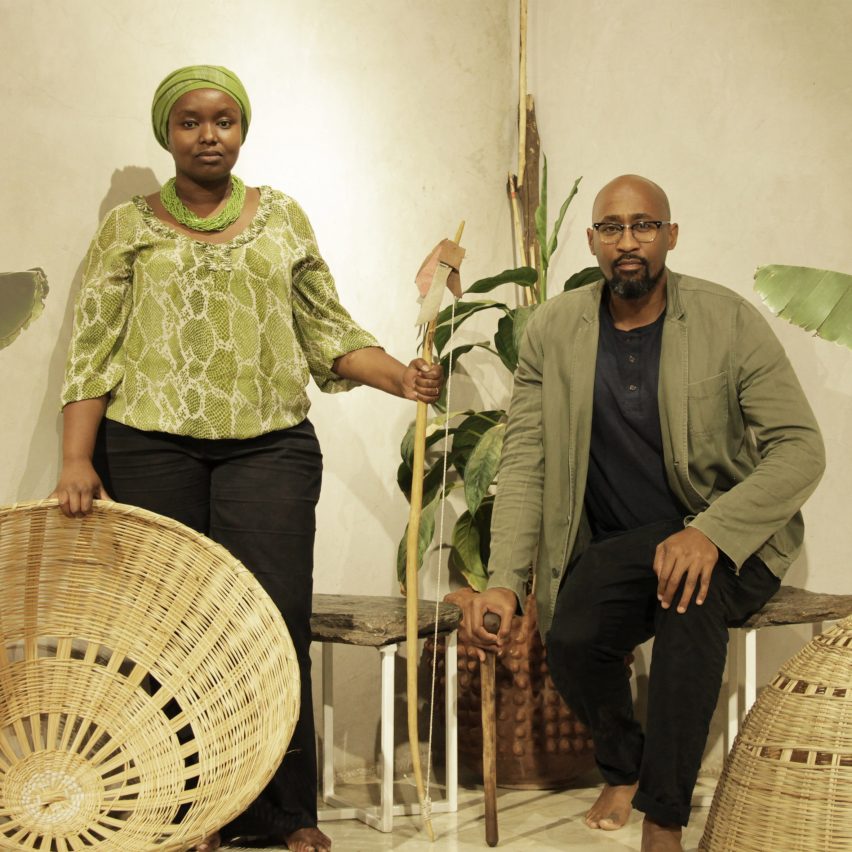
Cave Bureau proposes "a new decolonial infrastructure"
Day four: Kenyan architect Cave Bureau has used its research into caves, which the firm describes as "the root of architecture", to formulate a proposal for a new form of urbanism designed to heal the trauma of colonialism.
The Maasai Cow Corridor would allow tribespeople to safely herd their cattle through Nairobi, helping restore ancient rights that began to be eroded during the colonial era.
"We look at an architecture for an age of trauma, resistance and healing, which has its roots in our deep past," said Cave Bureau's Kabage Karanja and Stella Mutegi in a live interview from their studio in Nairobi.
"With the Maasai Cow Corridor, we're imagining a new decolonial infrastructure."
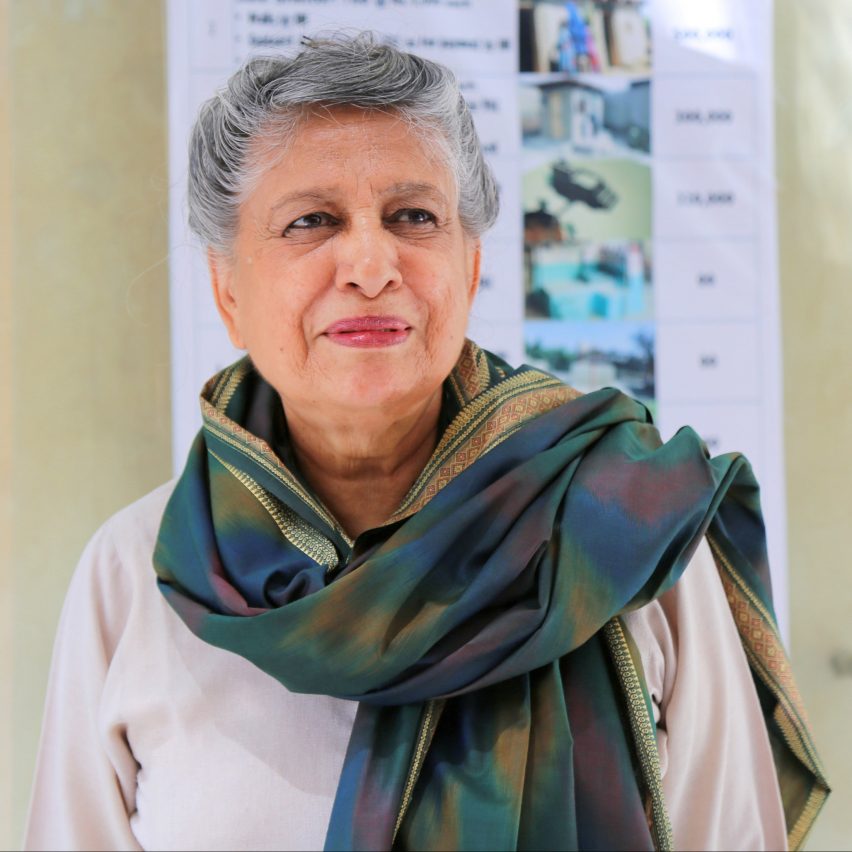
"Do away with the colonial mindset" says Yasmeen Lari
Day five: Pakistani architect Yasmeen Lari called for "a new activism" towards zero-carbon architecture in her manifesto.
Explaining her approach to "barefoot social architecture" in a live interview from her studio in Karachi, she called for an end to the era of egotistical architecture.
"We must develop a framework for a change direction in architecture," she said. "We need to do away with the prevalent colonial mindset and the desire to create imposing megastructures."